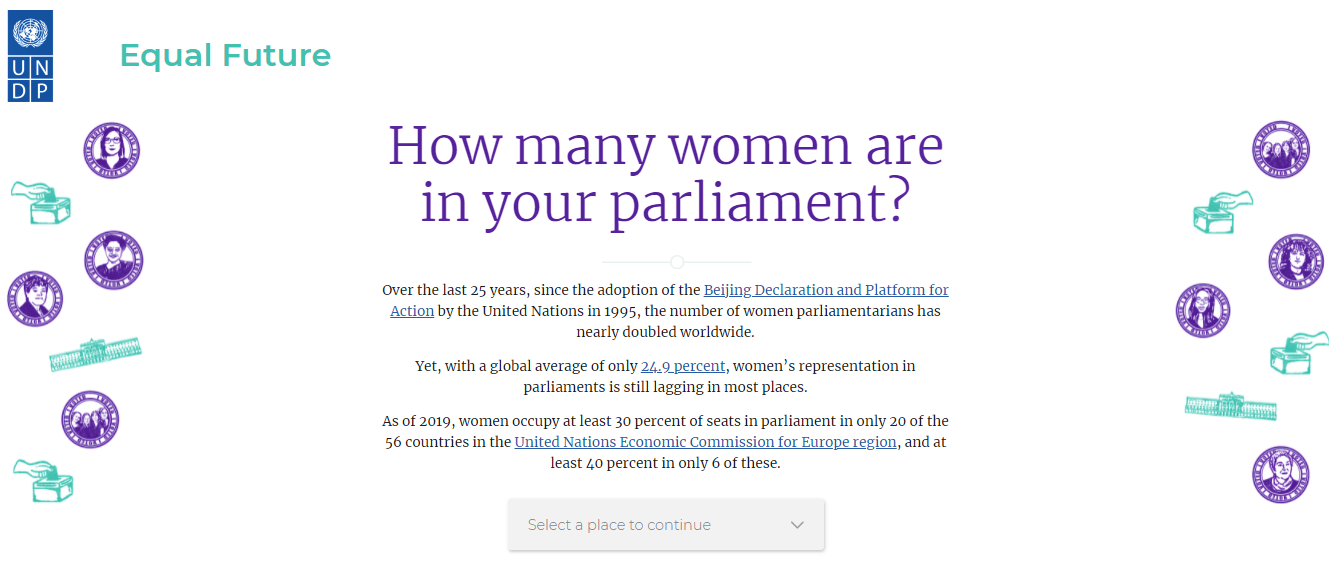Photo: Women's Political Network
75 years ago, women in Montenegro were allowed to vote for the first time. This was an important milestone for their participation in public life, politics and public affairs in general. Over the past decade, the representation of women in the Parliament doubled from ten to twenty– but this only brought the country to the global average (23 percent).
If progress is clear, so is the – conscious or unconscious – resistance to making parity between women and men in politics and decision-making a reality. Women running for political office defy social norms and are often considered as intruders – scrutinized, stigmatized, and targeted – not only by their political competitors but sometimes by the media, their communities, or their families
A troubling rise in violence
The trend is worrying: women are being increasingly antagonized with misogynist and sexist hate speech across public spheres and in the media, especially in social media. The fact that so many of our interactions have moved online during the COVID-19 pandemic has only made this trend more visible.
This phenomenon is not typical to Montenegro, nor is it new. 90 years ago, suffragists globally were ridiculed and even physically attacked for suggesting that their opinions on matters of societal significance were equal to those of men. Posters opposing women’s right to vote very much resembled today’s imagery on social media in their intention to attack, belittle and silence female politicians and women active in public life.
The latest Study on Violence Against Women in Politics, prepared by the Women’s Political Network in Montenegro, and numerous testimonials by female politicians reveal that women continue to face prejudice, discrimination and acts of psychological and physical violence when they join a field from which they have been traditionally excluded.
“If you show a willingness to be a devoted politician, your colleagues will do everything to prevent you from doing so. When you demonstrate that you are more qualified than your male colleagues, they will try to keep you out from the activities and discredit you until you finally give up,” says a 51-year old woman politician.
Nine out of ten women politicians in Montenegro experienced gender-based discrimination, while seven out of ten have experienced violence during their political work.
72 percent of women politicians claim the media are more concerned with their physical appearance and personal life than their men colleagues, and seven out of ten have experienced violence in the media sphere. 90 percent believe that they are not sufficiently present in the media, that the work of their colleagues is covered to a far greater extent.
And this is not perception. It is very rare for women politicians to be put on the cover page or in "more important" sections; the percentage does not exceed ten percent of all media covers or headlines. With this kind of editorial policy, the media clearly take a stand that the "man" word has more weight.
It also makes it more “acceptable” to write them off in the digital sphere. “"I would keep checking my phone, fearing things I could read about myself on social networks,” one woman politican said. “That’s such a terrible pressure."
It is safe to assume that, given their relative visibility and exposure, women politicians represent the tip of the iceberg of a larger trend of violence against women in public life overall.
Judged and shamed for their right to choose
Motivations behind misogynist attacks against women in public life here are manyfold, with two drivers standing out in particular:
First, the intent is to discourage women from stepping into the public sphere and send a strong negative signal to those who still consider it. The techniques are often the same as the controlling, manipulation, intimidation, and psychological pressures used by perpetrators of domestic violence.
Second, the opposing messages and narratives are deeply rooted in cultural norms and prejudices on the role and place of women in society. Though attitudes about women politicians may have changed marginally over the past few years, social and cultural values in many countries still support perceptions that women are less successful leaders than men.
These latent manifestations of inequality and discrimination are used to control and keep women in subordinate positions in society, denying them hard-won rights to participate in public decision-making.
Coordinated actions
This is a difficult landscape for women to stake their claim in. And one that requires solidarity on the part of those invested in expanding women’s presence in politics – from government, society and women politicians themselves.
In 2017, the Women’s Political Network was established in Montenegro to promote equal political and economic rights and to combat gender-based-violence. The idea was initiated by the women politicians themselves, and supported by UNDP and the Ministry of Human and Minority Rights with funding from the European Union.
The women representatives from 18 political parties have already put forward a number of recommendations for Parliament, political parties and media with a view to systematically address violence against women in political and public life. These recommendations call particular attention to reducing gender inequalities in all aspects of professional life. This includes campaigns to foster a culture of zero tolerance towards all forms of gender-based violence in politics, especially within the Parliament institution itself, as well as pushing for gender-sensitive reporting by the media and including respect for women’s human rights in the Code of Ethics for Journalists. UNDP in Montenegro advocated for the introduction of quotas in electoral legislation, which now requires 30 percent of candidate lists to be women.
With the WPN, women across parties gathered together, bringing to life a new political culture and ensuring dialogue in their country. From fighting violence in the family to public stigma against women, from economic empowerment to getting women into decision-making roles, they have crossed party lines and their collaboration is one-of-a-kind in the Montenegrin Parliament. It takes this kind of coordinated action to make lasting change, both for women and the country.
Explore more about the representation of women in parliaments across Europe and Europe and Central Asia region in our interactive platform Equal Future.

 Locations
Locations


